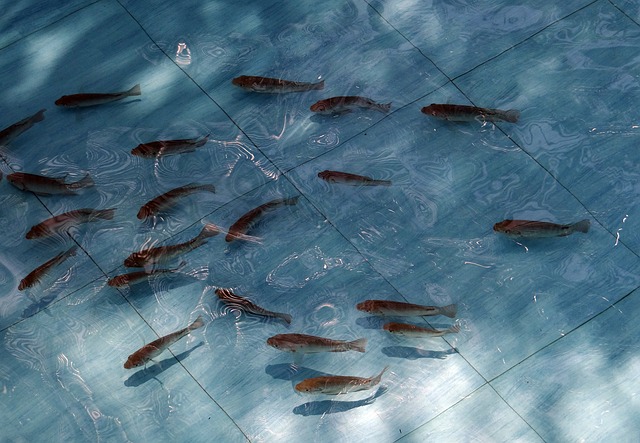October 30, 2017
Dutch, pure-play sustainable aquaculture investment fund Aqua-Spark has made two investments that broaden its reach into technologies that have the potential to reduce the use of antibiotics in animal protein production, and to advance fish breeding methodology.
Anti-resistance
The first investment is in Proteon – a Polish agbiotech company developing naturally occurring bacteriophages, which target specific infections in fish and poultry without resulting in future resistance, as broad-spectrum antibiotics can. Seventy percent of antibiotics in use today are used in the animal production supply chain, and these new-generation biophages can be an effective alternative to antibiotics for animals raised for food while also protecting the health of the human population and the environment, since they are believed to have a limited effect on the overall bacteria ecology.
“We are gratified with the recognition for our concept of developing a product based on bacteriophages,” said Jarostaw Dastych, CEO of Proteon.”Our product for Aquaculture, BAFADOR®, fights two of the most common pathogens responsible for mortality in farmed fish. The investor particularly appreciated that BAFADOR® exploits the action of highly selective bacteriophages that attack only strictly defined pathogenic bacteria, and as a result our preparation does not disrupt the natural bacterial flora of the fish, and also stimulates defensive mechanisms and resistance in the studied species of fish.”
Deaths caused by bacteria that have grown increasingly resistant to antibiotics continue to be on the rise, according to both the European Center for Disease Prevention and Control (ECDC) and the U.S. Center for Disease Control and Prevention (CDC) – and the associated healthcare costs and loss of production place a further burden on the economy as a whole. These threats to both people and society are compounded in Africa and Asia, creating one of the top threats to food security, global health, and development, according to the World Health Organization (WHO).
“Finding alternatives to antibiotics has been a company priority from the start – so, the strides Proteon Pharmaceuticals has made in understanding bacteriophages are truly a boon,” explains Mike Velings and Amy Novogratz, cofounders of Aqua-Spark. “After years of being on the periphery, we’re just starting to unlock phages potential. Proteon Pharmaceuticals is transforming phages found in nature into commercial-grade products that target bacterial infections in a way that doesn’t create resistance.”
After 10 years of development, Proteon plans to use the funds gained from this investment to support the commercialization of its products on a global scale, and to lift its production capacity.
“There are not many companies active in this space,” Velings told Feed Navigator. “We only identified a handful globally – spanning Korea, China, Western Europe, and the U.S. There are not that many, frankly, and even fewer with actual products in the market.”
However, this investment points to the importance of such scientific work and how bacteriophages are coming onto the radar of investors eager to not only support research that has the potential for great benefit to society, but to get in on the ground floor of a very promising category.
“Aqua-Spark’s investment is sign of the growing awareness of the value bacteriophages as an important way of treating or preventing diseases in food animals,” said Matthew Tebeau, managing board member and COO of Proteon. “With the growth of antibiotic resistance as a global problem and the increasing demands on animal protein production worldwide, a natural and sustainable health solution, like our products based on bacteriophages, will increase farm efficiency and support food safety.”
Good Breeding
The second investment recently announced by Aqua-Spark was in Cryoocyte – a technology platform that helps improve the efficiency of selective fish breeding without employing genetic modification.
Using low temperature preservation of unfertilized fish eggs, Cryoocyte allows for greater control and accuracy in high-precision fish farming operations by giving managers and farmers data on egg quality, DNA, and disease detection, thereby giving them more time to consider the genetic makeup of their fish before making critical husbandry decisions.
“For example,” Velings told IntraFish, “with species like salmon you have 24 hours to select the best eggs and in many occasions this means only selecting among males, whereas if you have them frozen you can extend this period to weeks and select both females and males to ensure that you have the best quality eggs and fingerlings.”
The supply of information combined with the time needed for evaluation, extends the period of time between spawning and fertilization allowing for the grading of fish eggs into batches based on genetic, biochemical, and morphological protocols.
Beyond Feed
To date, Aqua-Spark has 49.2 million Euro (US$57.2 million) under management, but plans to see growth to 1.5 billion Euro in assets under management by 2025, according to Fish Information & Services. And while achieving this growth, Aqua-Spark sees itself expanding its investment thesis beyond feed into technologies that have sustainability in mind as well as a long-term view for a health aquaculture sector.
“Our next investments will surely be in technology, farming of fish, farming of aquatic plants and seaweed and potentially in market techs,” Velings told IntraFish, and noted that the firm plans to make another 10 investments over the course of the next year.
An important factor in deciding on where to commit capital will be the acknowledgment of the importance of not limiting research and development to advancements that only apply to a few select species of fish – that for the health of the sector and for greater food security, the more species that are sustainably farmed, the better.
-Lynda Kiernan

Let GAI News inform your engagement in the agriculture sector.
GAI News provides crucial and timely news and insight to help you stay ahead of critical agricultural trends through free delivery of two weekly newsletters, Ag Investing Weekly and AgTech Intel.




